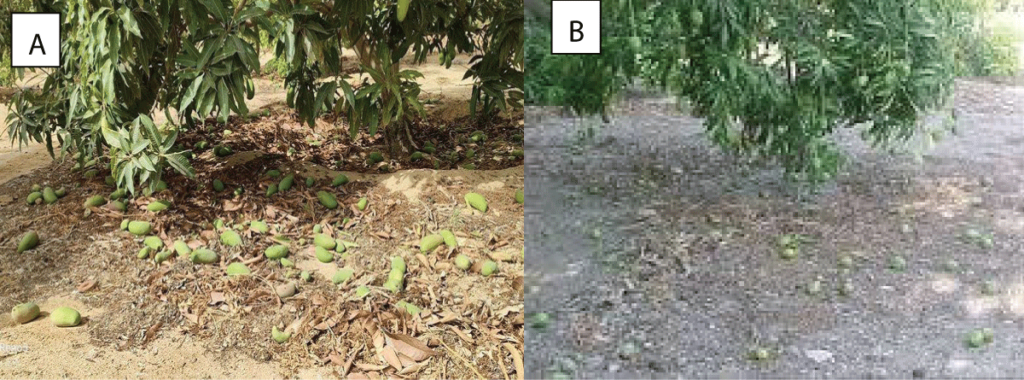The Role of Temperature in Mango Production Amidst Climate Change
Impact of Climate Change on Mango Production: A Closer Look at Temperature Variations
Mangoes (Mangifera indica L.), known as the “king of fruits,” hold a special place in tropical and subtropical agriculture. As climate change continues to reshape global weather patterns, its effects on crops like mangoes have become a significant area of study. A recent review by Khalifa SM and Abobatta WF, published in IgMin Research (Full Text, DOI), examines how temperature fluctuations and other climatic variables impact mango cultivation, productivity, and quality.
How Climate Change Affects Mango Production
Mango trees thrive in warm climates, but their sensitivity to temperature shifts presents challenges in the face of global warming. As temperatures rise, especially during the flowering and fruit-setting stages, the productivity of mango trees can be negatively affected. High nighttime temperatures and fluctuations between day and night can alter flowering cycles and fruit quality. This creates new hurdles for farmers and researchers working to adapt mango cultivation practices to the changing climate.
Image: The effect of heat stress on mango trees, leading to changes in flowering patterns.
Temperature’s Role in Mango Growth and Flowering
The ideal temperature range for mango growth is between 27°C and 33°C, which promotes healthy flowering and fruit development. However, temperatures outside this range can harm pollen viability, leading to lower fruit set rates. For example, temperatures below 17°C can cause pollen grains to swell and become nonviable, while extreme heat can inhibit photosynthesis, ultimately reducing yields. In areas experiencing colder winters, even brief exposure to temperatures below 1°C can damage young trees and disrupt the entire flowering cycle.
Image: Temperature fluctuations affecting mango flowering and fruit set, showing how low temperatures can hinder reproductive success.
Regional Impacts and Adaptation Strategies
Regions like Australia and Egypt have seen direct impacts of climate change on mango production. Warmer winters have shortened the mango development cycle by up to 16 days in Australia, which affects the timing of harvests and overall fruit quality. Meanwhile, Egyptian mango orchards have faced challenges with early flowering followed by sudden temperature spikes, leading to pollen damage and reduced fruit set. These examples highlight the need for region-specific adaptation strategies to mitigate the adverse effects of climate change on mango production.
Adaptation efforts include selective breeding and genetic modification to develop mango cultivars that are more tolerant to temperature variations. Additionally, improved agricultural practices like mulching, drip irrigation, and protective shading can help farmers better manage the impact of heat stress on their orchards.
Balancing Heat and Fruit Quality
While high temperatures can pose risks to mango production, they can also enhance certain aspects of fruit quality. For instance, increased light intensity during hot conditions can improve the color and flavor of some mango cultivars, making them more appealing in the market. However, this benefit is only realized if the heat stress is managed properly to avoid damaging the fruit during critical growth stages.
Image: Fluctuations in temperature influencing the appearance and quality of mango fruits, highlighting the balance between stress and optimal growth conditions.
Conclusion: Navigating Climate Challenges for Future Mango Production
The review by Khalifa SM and Abobatta WF underscores the complex relationship between climate change and mango cultivation. As global temperatures continue to rise, understanding these dynamics is crucial for developing sustainable mango production practices. The adaptation strategies mentioned in the study offer a pathway for farmers to maintain productivity while navigating the challenges of a changing climate.
To delve deeper into the findings, access the full study here or explore the detailed research PDF here.
Tags:
Mango Cultivation, Climate Change, Temperature Effects, Agricultural Adaptation,
Mango Flowering, Heat Stress, Sustainable Farming, Tropical Fruits, IgMin
Research, Mango Productivity.

